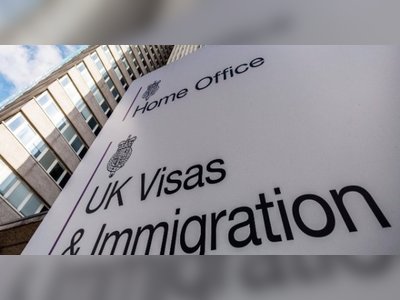
UK Digital-ID Plans Spark Deep Concern Amid Privacy and Inclusion Warnings
Prime Minister’s “Brit Card” proposal aims to streamline work and services — but critics warn it risks exclusion, surveillance and technical failure
The United Kingdom’s government has unveiled an ambitious plan to roll out a national digital identity system, set to become a mandatory requirement for right-to-work checks by the end of this parliamentary term.
The digital ID — provisionally dubbed “BritCard” — will allow citizens and legal residents to store verified credentials such as name, date of birth, photo, nationality and residency status on smartphones or via alternate methods for those without devices.
Prime Minister Keir Starmer announced the scheme at a global summit in late September 2025, declaring: “You will not be able to work in the UK if you do not have digital ID.” The government argues the move will help clamp down on illegal labour, reduce paperwork, and make it easier for people to access services such as banking, housing and public-sector support.
Officials say the ID will be issued free and available to all eligible legal residents.
But the proposal has prompted a wave of concern from civil-liberties groups, digital-rights advocates and experts.
Many argue the system could entrench a “permission slip” approach — giving the state a new instrument to gatekeep access to work, housing and other essentials.
There are fears that once established, digital ID could be expanded far beyond employment checks, extending into sectors such as banking, housing, welfare or even daily services.
Privacy and security concerns are also at the fore.
Critics point out that centralising sensitive personal data — even if nominally encrypted — raises risks of misuse, hacking or improper data sharing.
Some note the UK’s troubled history with large identity databases and argue the project could disproportionately disadvantage already vulnerable groups, including people without smartphones, older citizens, the homeless or those lacking stable internet access.
Industry-observed cost estimates for building the system have surfaced: roughly £1.8 billion over three years, with no new dedicated funding allocated — the government insists costs will be met from existing budgets.
The absence of a dedicated “chief digital officer” role has further fueled scepticism over whether sufficient oversight, technical safeguards and long-term funding are in place.
Public reaction has shifted significantly since the plan’s announcement.
Polling indicates support has fallen sharply while opposition has surged.
A petition against mandatory digital ID has garnered more than 2.9 million signatures — among the largest in modern UK history — prompting civil-society organisations to call for greater consultation, transparency and guarantees for inclusion.
A parliamentary debate is expected in December.
As the UK moves toward implementing digital ID, the government faces a delicate balancing act: achieving its stated aims of reducing illegal work and simplifying identity verification, while safeguarding privacy, inclusion and public trust in the digital future of national identity.
The digital ID — provisionally dubbed “BritCard” — will allow citizens and legal residents to store verified credentials such as name, date of birth, photo, nationality and residency status on smartphones or via alternate methods for those without devices.
Prime Minister Keir Starmer announced the scheme at a global summit in late September 2025, declaring: “You will not be able to work in the UK if you do not have digital ID.” The government argues the move will help clamp down on illegal labour, reduce paperwork, and make it easier for people to access services such as banking, housing and public-sector support.
Officials say the ID will be issued free and available to all eligible legal residents.
But the proposal has prompted a wave of concern from civil-liberties groups, digital-rights advocates and experts.
Many argue the system could entrench a “permission slip” approach — giving the state a new instrument to gatekeep access to work, housing and other essentials.
There are fears that once established, digital ID could be expanded far beyond employment checks, extending into sectors such as banking, housing, welfare or even daily services.
Privacy and security concerns are also at the fore.
Critics point out that centralising sensitive personal data — even if nominally encrypted — raises risks of misuse, hacking or improper data sharing.
Some note the UK’s troubled history with large identity databases and argue the project could disproportionately disadvantage already vulnerable groups, including people without smartphones, older citizens, the homeless or those lacking stable internet access.
Industry-observed cost estimates for building the system have surfaced: roughly £1.8 billion over three years, with no new dedicated funding allocated — the government insists costs will be met from existing budgets.
The absence of a dedicated “chief digital officer” role has further fueled scepticism over whether sufficient oversight, technical safeguards and long-term funding are in place.
Public reaction has shifted significantly since the plan’s announcement.
Polling indicates support has fallen sharply while opposition has surged.
A petition against mandatory digital ID has garnered more than 2.9 million signatures — among the largest in modern UK history — prompting civil-society organisations to call for greater consultation, transparency and guarantees for inclusion.
A parliamentary debate is expected in December.
As the UK moves toward implementing digital ID, the government faces a delicate balancing act: achieving its stated aims of reducing illegal work and simplifying identity verification, while safeguarding privacy, inclusion and public trust in the digital future of national identity.










